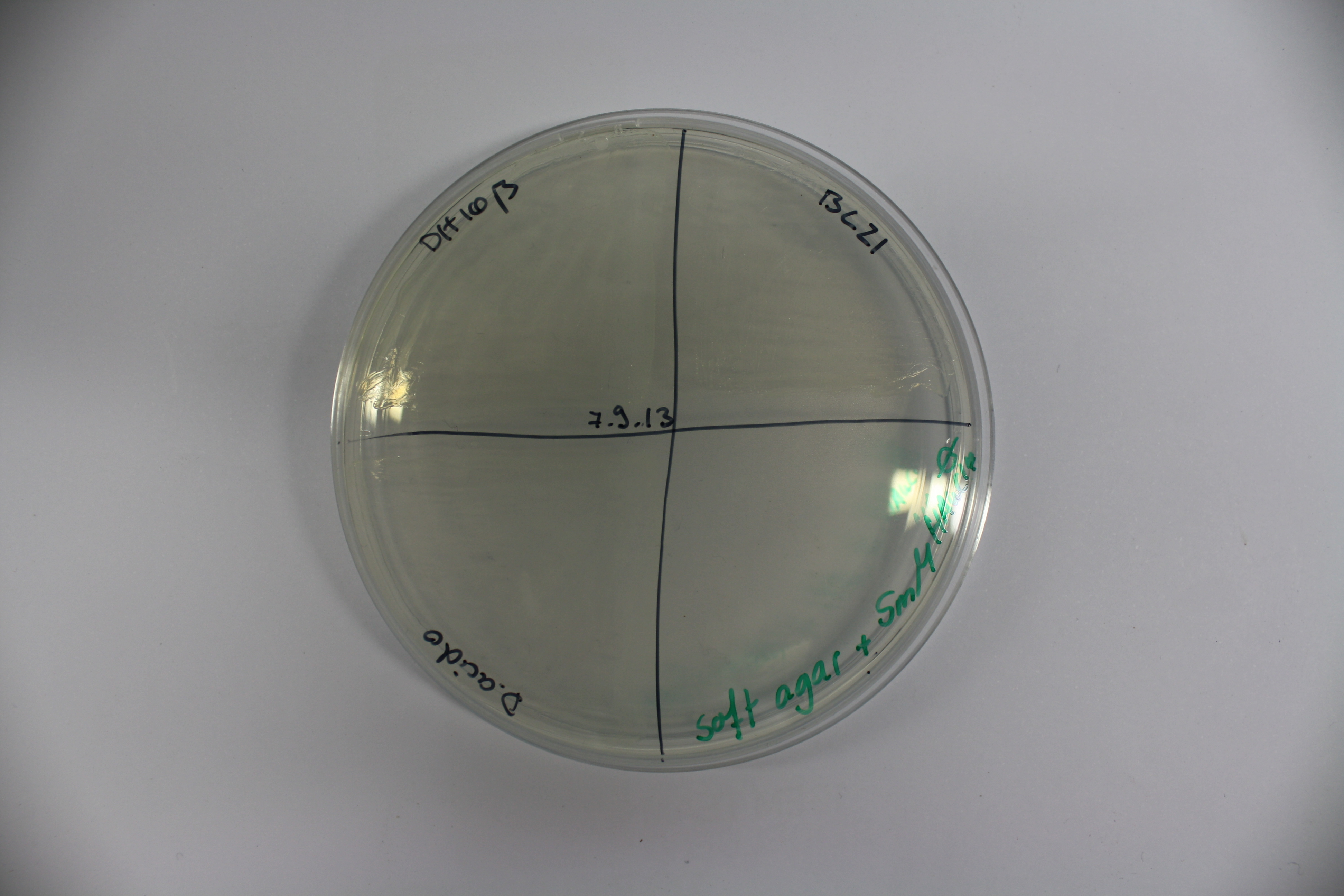Team:Heidelberg/Templates/Delftibactin week19
From 2013.igem.org
Contents |
02-09 - 08-09-13
Optimizing Growth Conditions of D.acidovorans and Evaluation of Endogenous Background Gold Precipitation
In order to optimize plates for cultivation of D.acidovorans as well as to evaluate of endogenous capability of possible target strains, capability of D.acidovorans and E. coli DH10ß and BL21 DE3 grown on LB and ACM plates was tested.
On Agar Plate following ON Incubation at 30°C
- On agar plates, D.acidovorans, E.coli DH10ß, and Bl21 were plated from liquid culture and grown ON at 30 °C.
- The following day, 1.6 ml soft agar (0.5%) was mixed with goldchloride [100 g/l] as follows:
| Final goldchloride concentration [mM] | Volume goldchloride stock [µl] |
|---|---|
| 5 | 27 |
| 10 | 54.4 |
| 20 | 108.8 |
| Agar plate | Goldchloride [mM] | H2O | D.acidovorans | DH10ß | BL21 DE3 |
|---|---|---|---|---|---|
| ACM | 0 | no reaction | no reaction | no reaction | no reaction |
| ACM | 5 | postponed weak coloring ON | weak coloring after 2 min | weak coloring after 2 min | weak coloring after 2 min |
| ACM | 10 | postponed dark coloring ON | strong coloring after 2 min | strong coloring after 2 min | strong coloring after 2 min |
| ACM | 20 | postponed dark coloring ON | strong coloring after 2 min | strong coloring after 2 min | strong coloring after 2 min |
| LB | 0 | no reaction | no reaction | no reaction | no reaction |
| LB | 5 | no reaction | no reaction | no reaction | no reaction |
| LB | 10 | no reaction | no reaction | no reaction | no reaction |
| LB | 20 | no reaction | no reaction | no reaction | no reaction |
Result
All bacteria showed strong and immediate purple-black coloring indicating gold precipitation depending on gold chloride concentration. Regarding the precipitation of gold, there does not seem to be a significant advantage of D.acidivorans. In contrast to the paper from Johnston et al., we only grew them ON at 30°C rather than for 3 days. We will repeat the experiment using 3 day incubation time and also evaluate gold precipitation on additional media as well as by additional bacteria.
 "
"

